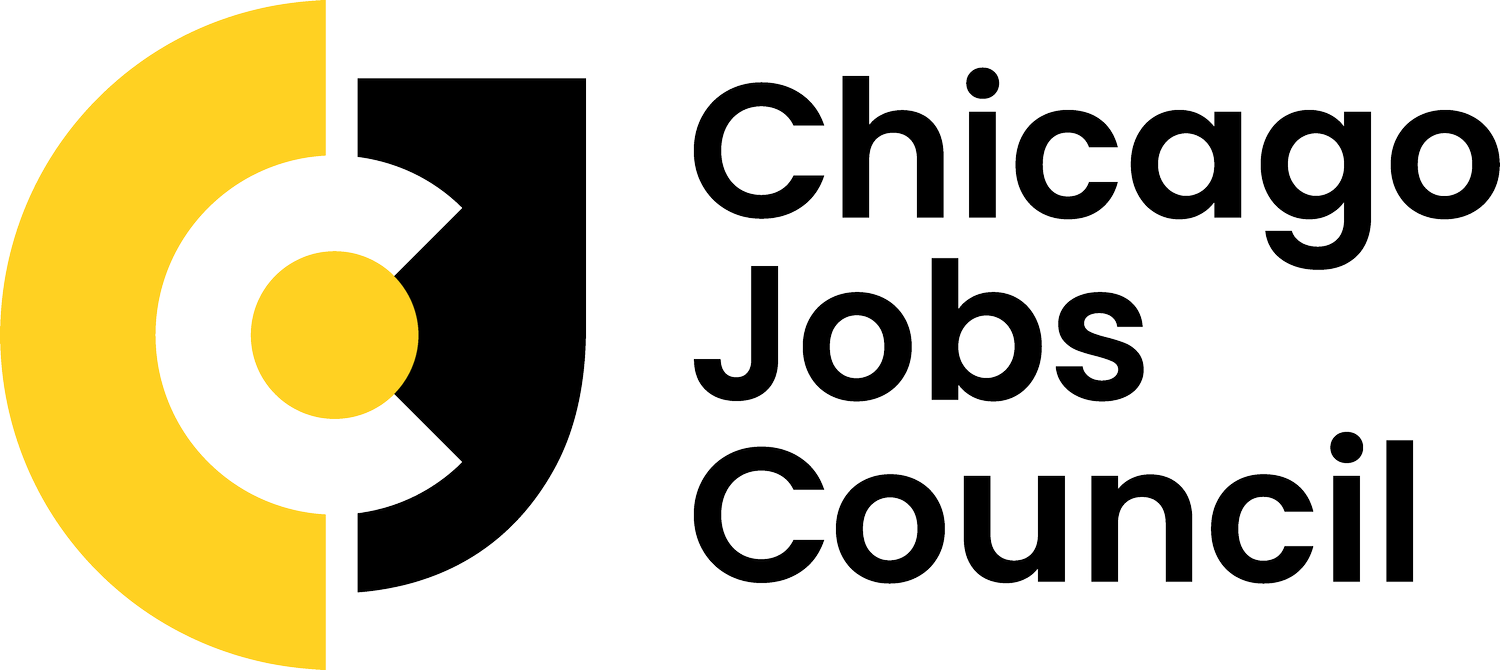Charting the Path Forward: A Letter From CJC’s CEO
Dear Jobs Council Community,
For more than 40 years, Chicago Jobs Council (CJC) has advocated on behalf of our members, which include organizations that deliver services to jobseekers. We have influenced, informed, and advanced policy in the areas of equitable pathways with economic mobility; increased funding for an underfunded workforce system; and, removed barriers that keep people from being able to work. Our webinars, trainings, and learning cohorts have helped build capacity in the workforce development field based on our research of best practices.
Like many organizations, we have been re-examining our priorities and determining focus areas as a result of all we’ve experienced over the last two years: the pandemic, unprecedented unemployment rates, a sluggish economy emerging with high inflation, unstable interest rates, and disproportionate impacts on women and people of color in the labor market.
On the heels of our 41st anniversary and annual meeting and a new fiscal year, I am excited about the possibilities of sustainable growth for CJC as an intermediary in the workforce ecosystem. I envision CJC proactively and strategically leading the way to champion relevant and pressing matters that impact jobseekers and stakeholders in the workforce development field.
In recognition of systemic, institutional, and individual racism creating disparities in the way people of color fare in the labor market, CJC’s board and staff have developed a strategic plan that is anchored in racial equity to guide our future course. As we continue our work, we want to think intentionally about getting to a place of racial equity. Racial equity is defined as the condition that would be achieved if one’s racial identity no longer, in a statistical sense, predicted how one fares. It is one part of racial justice to address root causes of inequities, not just their manifestation. We’re approaching our work with a sense of wonder and proactively thinking about how CJC can change conditions to achieve racially equitable outcomes.
Internally, we’re considering various levels of racism that exist — personal, interpersonal, institutional, and structural. We have been working with a consultant to deepen our commitment to racial equity and gain a common understanding and shared language. With our consultant, Clair Minson, Founder and Principal Consultant at Sandra Grace, LLC, staff engaged in discussions about the history of racism in workforce development policy; the manifestations of racism in program design and service delivery, engagement with funders, and engagement with employers; and, the role of narrative in upholding racism in the field. We are currently drafting an initial anti-racist workforce development definition that will be shared with external stakeholders to test and further refine.
After establishing the anti-racist workforce development definition, using key insights from the brainstorming discussions, focus groups and field research, our consultant will work closely with staff to co-create an anti-racist workforce development framework. The framework will be used to guide the implementation and operationalization of CJC’s strategic priorities and provide a process for field partners to understand and advance anti-racist workforce development strategies.
Alongside these internal changes, we are architecting a bold external brand to raise CJC’s profile as a comprehensive systems change organization and attract like-minded advocates, donors, funders, workforce development professionals, community based organizations, governmental organizations, and elected officials to further partner in this work. In the coming weeks and months, you will continue to see changes to our visual identity as we roll out a new and refreshed brand architecture that is aligned with our path forward.
We are excited about this moment in time where we are imagining our future and look forward to bringing our entire community on this journey with us.
In Solidarity,
CEO, Chicago Jobs Council



